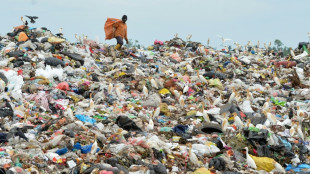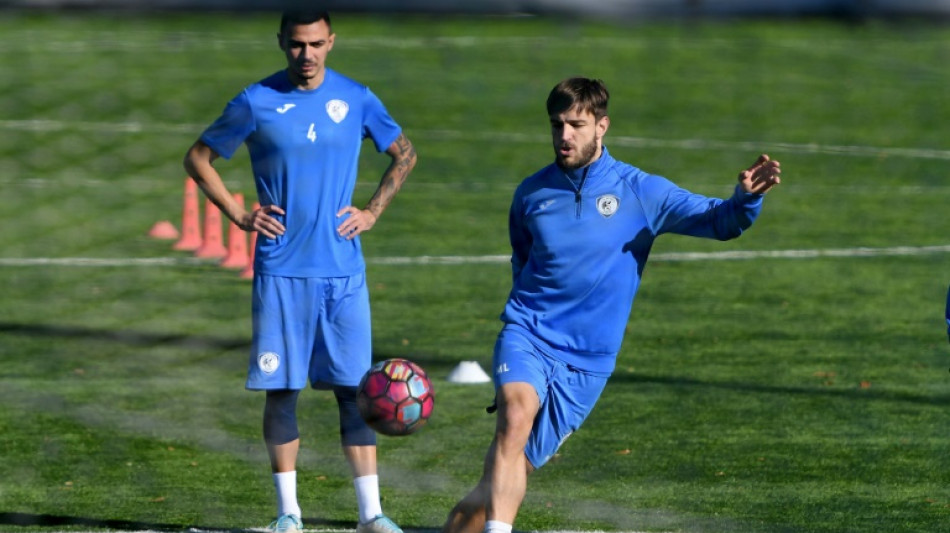
-
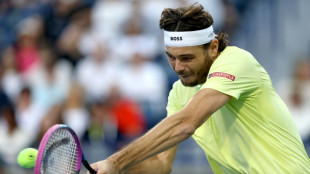 Second seed Fritz ends Canadian hopes at ATP Toronto Masters
Second seed Fritz ends Canadian hopes at ATP Toronto Masters
-
Japan sweats through hottest July on record
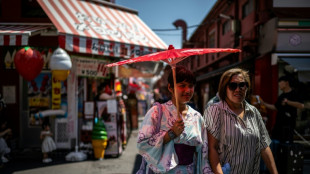
-
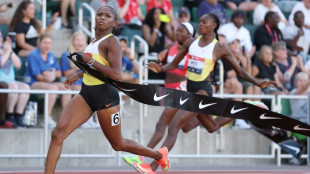 Jefferson-Wooden, Bednarek blaze to 100m titles at US trials
Jefferson-Wooden, Bednarek blaze to 100m titles at US trials
-
Son Heung-min to leave Tottenham this summer after decade
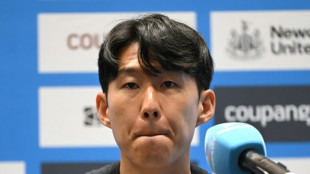
-
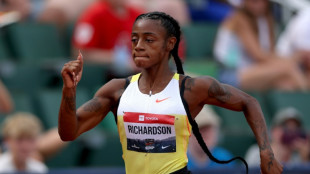 Richardson 'domestic violence' drama overshadows US trials
Richardson 'domestic violence' drama overshadows US trials
-
Bid to relocate US Space Shuttle Discovery faces museum pushback
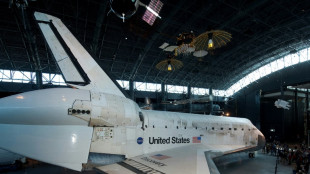
-
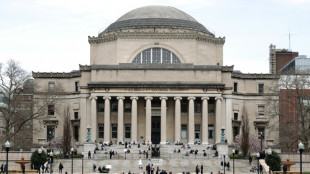 Academics warn Columbia University deal sets dangerous precedent
Academics warn Columbia University deal sets dangerous precedent
-
Sevastova topples Pegula to book date with Osaka, Swiatek advances in Montreal
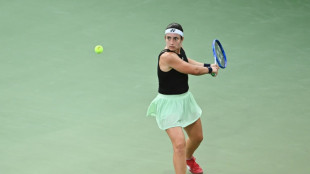
-
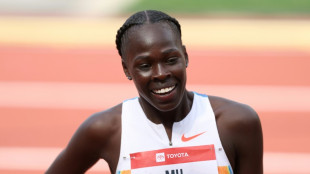 Former Olympic champion Mu-Nikolayev fails in worlds bid
Former Olympic champion Mu-Nikolayev fails in worlds bid
-
Sensible and steely: how Mexico's Sheinbaum has dealt with Trump
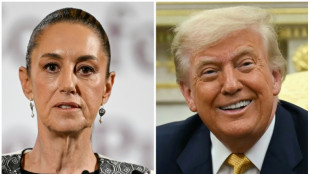
-
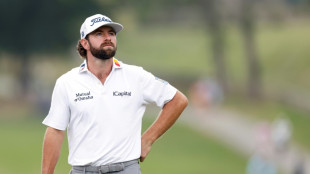 Young leads at weather-hit PGA Wyndham Championship
Young leads at weather-hit PGA Wyndham Championship
-
US sprint star Richardson out of trials following arrest
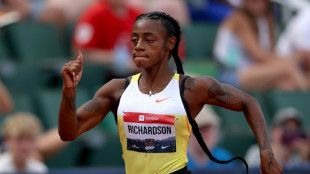
-
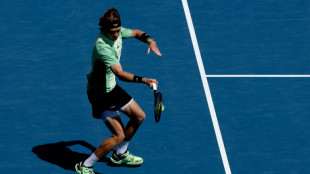 Rublev, Tiafoe sweat out three-set wins in Toronto
Rublev, Tiafoe sweat out three-set wins in Toronto
-
Ex-porn actor to be Colombian equality minister
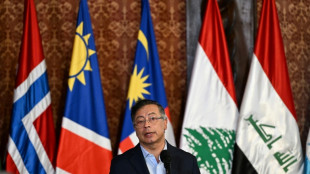
-
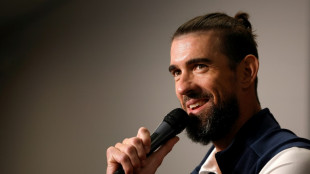 Olympic swim greats Phelps, Lochte, rip US World Championships performance
Olympic swim greats Phelps, Lochte, rip US World Championships performance
-
Brazilians burn Trump effigies as tariffs spark anger
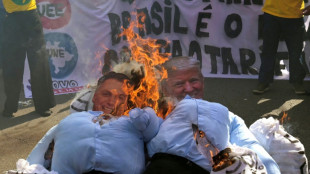
-
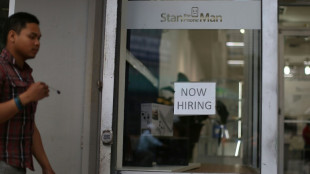 Global stocks fall sharply on weak US job data, Trump tariffs
Global stocks fall sharply on weak US job data, Trump tariffs
-
Lyles, Richardson scratch from 100m at US trials
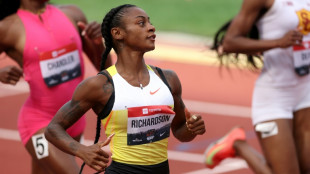
-
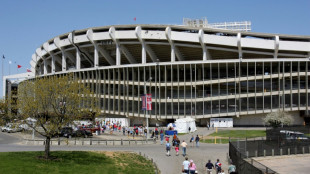 NFL Commanders win key vote in quest for new stadium
NFL Commanders win key vote in quest for new stadium
-
US Fed governor to resign early at critical time for central bank
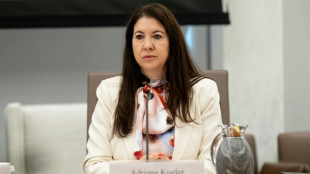
-
 US keeper Turner joins Lyon from Notts Forest, loaned to MLS
US keeper Turner joins Lyon from Notts Forest, loaned to MLS
-
Epstein accomplice Maxwell moved to minimum security Texas prison
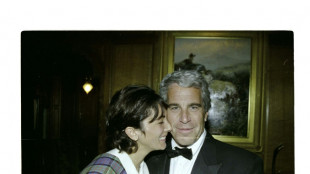
-
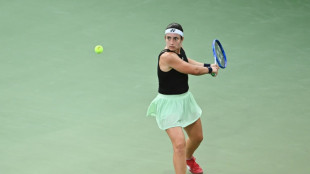 Sevastova shocks fourth-ranked Pegula to book date with Osaka
Sevastova shocks fourth-ranked Pegula to book date with Osaka
-
End of the chain gang? NFL adopts virtual measurement system
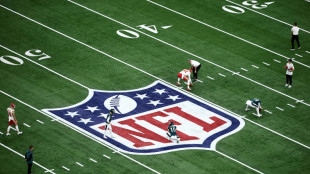
-
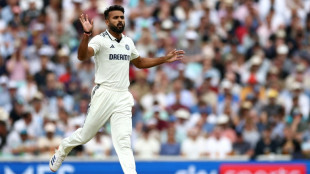 Deep lucky to escape Duckett 'elbow' as India get under England's skin
Deep lucky to escape Duckett 'elbow' as India get under England's skin
-
Search intensifies for five trapped in giant Chile copper mine
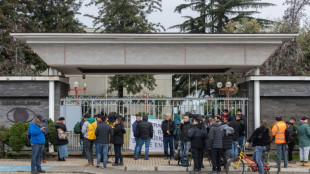
-
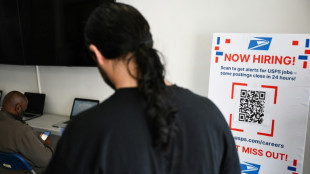 Trump orders firing of US official as cracks emerge in jobs market
Trump orders firing of US official as cracks emerge in jobs market
-
Trump deploys nuclear submarines in row with Russia
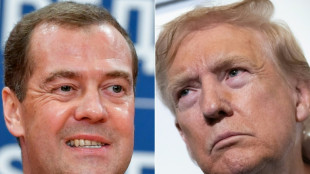
-
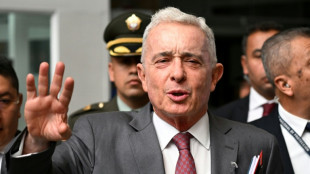 Colombian ex-president Uribe sentenced to 12 years house arrest
Colombian ex-president Uribe sentenced to 12 years house arrest
-
Wave of fake credentials sparks political fallout in Spain
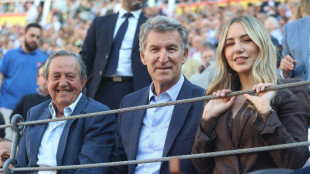
-
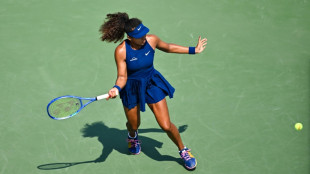 Osaka ousts Ostapenko to reach WTA fourth round at Canada
Osaka ousts Ostapenko to reach WTA fourth round at Canada
-
Rovanpera emerges from home forests leading Rally of Finland
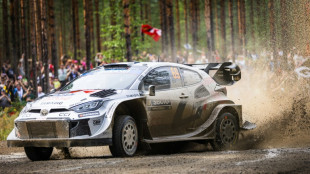
-
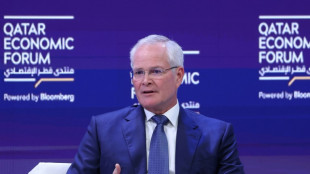 Exxon, Chevron turn page on legal fight as profits slip
Exxon, Chevron turn page on legal fight as profits slip
-
Prosecutors call for PSG's Achraf Hakimi to face rape trial
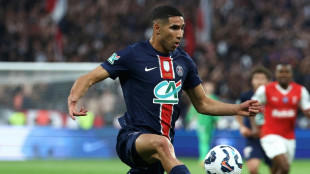
-
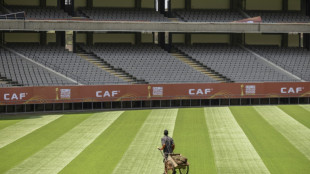 Missing Kenya football tickets blamed on govt protest fears
Missing Kenya football tickets blamed on govt protest fears
-
India's Krishna and Siraj rock England in series finale
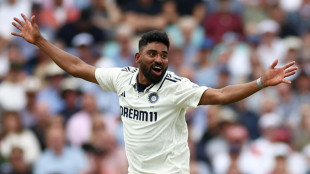
-
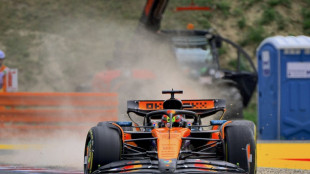 Norris completes 'double top' in Hungary practice
Norris completes 'double top' in Hungary practice
-
MLB names iconic Wrigley Field as host of 2027 All-Star Game
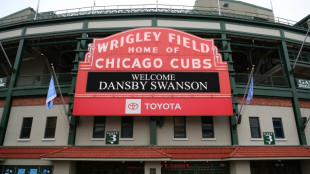
-
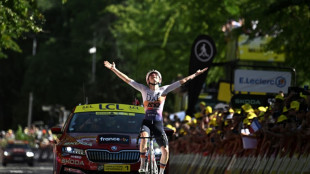 Squiban doubles up at women's Tour de France
Squiban doubles up at women's Tour de France
-
International crew bound for space station
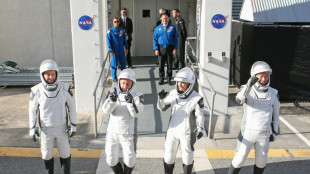
-
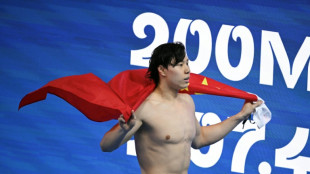 China's Qin takes 'miracle' second breaststroke gold at swim worlds
China's Qin takes 'miracle' second breaststroke gold at swim worlds
-
Siraj strikes as India fight back in England finale
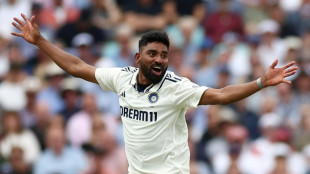
-
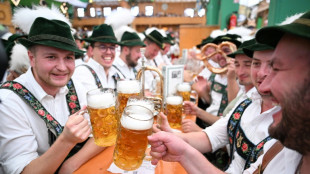 Brewed awakening: German beer sales lowest on record
Brewed awakening: German beer sales lowest on record
-
Indonesia volcano belches six-mile ash tower
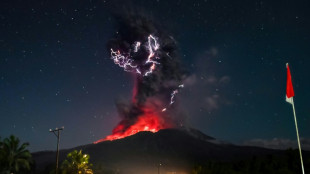
-
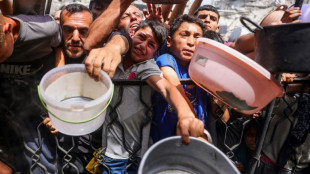 US promises Gaza food plan after envoy visit
US promises Gaza food plan after envoy visit
-
Musk's X accuses Britain of online safety 'overreach'

-
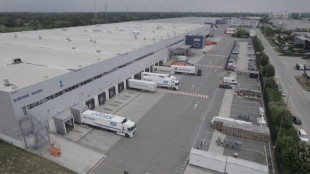 France says it cannot save contraceptives US plans to destroy
France says it cannot save contraceptives US plans to destroy
-
Russian drone attacks on Ukraine hit all-time record in July
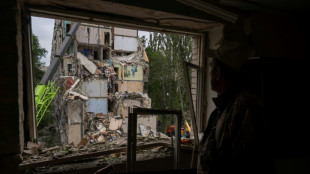
-
 Stocks sink on Trump tariffs, US jobs data
Stocks sink on Trump tariffs, US jobs data
-
Newcastle reject Liverpool bid for Isak: reports
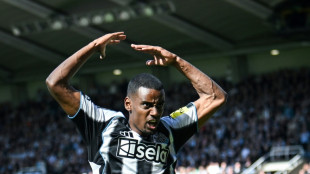
| SCU | 0% | 12.72 | $ | |
| CMSD | 0.34% | 23.35 | $ | |
| CMSC | 0.09% | 22.87 | $ | |
| BCC | -0.55% | 83.35 | $ | |
| SCS | -1.47% | 10.18 | $ | |
| NGG | 1.99% | 71.82 | $ | |
| RBGPF | 0% | 74.94 | $ | |
| JRI | -0.23% | 13.1 | $ | |
| GSK | 1.09% | 37.56 | $ | |
| AZN | 1.16% | 73.95 | $ | |
| RIO | -0.2% | 59.65 | $ | |
| BCE | 1.02% | 23.57 | $ | |
| BTI | 1.23% | 54.35 | $ | |
| VOD | 1.37% | 10.96 | $ | |
| RYCEF | 0.07% | 14.19 | $ | |
| RELX | -0.58% | 51.59 | $ | |
| BP | -1.26% | 31.75 | $ |

Serbians and Albanians kick aside differences on football pitch
Relations have rarely been good between Albania and Serbia. But for Serbian footballers playing in the land of their erstwhile foes, the sport transcends the long standing differences between the rivals.
"Football is a fabulous tool for learning to live together," said Luka Milanovic, 29, who is one of 15 Serbian footballers playing professionally in Albania.
Ties between Albania and Serbia have long been beset by differences, especially their conflicting views over the status of Kosovo.
Following a bloody war in the late 1990s, Belgrade continues to view the territory as a renegade province and has never recognised its independence declaration made in 2008.
The mistrust between Kosovo -- with its Albanian and Muslim majority -- and Serbia -- a largely Orthodox nation -- is far from Milanovic's thoughts on the pitch.
He has been given a "warm welcome" since arriving four months ago to play professionally in Albania for Kukes, a first division team hailing from a mountainous region bordering Kosovo.
The area once hosted more than 500,000 ethnic Albanians fleeing attacks by Serb forces during the war in Kosovo.
Now, the region is peaceful and home to Kosovar Albanians, Montenegrins and Croatians who also play football professionally for Kukes.
"I'm here for the love of football," Luka told AFP.
For him, competing in Albania is a natural continuation of a career that has seen him play for Red Star and OFK Belgrade in Serbia along with stints in Belgium, Malaysia, Greece and Hungary.
- 'The language of football' -
"For the players and supporters, Luka is one of us," said Erjon Allaraj, the club's spokesman.
"We speak different languages, but we all know the language of football," added Kukes' captain Gjelberim Taip -- an Albanian from the southern Serbian town of Bujanovac.
For the birth of Milanovic's first child in December, the whole team joined him in celebrating.
His experience is far from the exception.
On the other side of the country not far from the shores of the Adriatic, Aleksandar Ignjatovic, 33, remembers the shock and concern from his friends when he told them he was moving to Albania to play with KF Lac.
"Now, when they look on Instagram at my life in Albania, many tell me they want to come visit me," Ignjatovic tells AFP.
With an eye towards retirement, Ignjatovic says he hopes to draw on his experiences in Albania to develop a post-football career.
"I am thinking of opening a tourism agency that will allow me to work in Albania and Serbia. I now know all the beautiful places in Albania," he says, with the hopes of cashing in on Serbia's growing tourism industry.
Ignjatovic also prides himself in having many Albanian friends and scoffs at the ethnic prejudices that have long divided many communities in the region.
- 'How it should be' -
"Football allows us to strengthen our ties. Football and politics are two completely different worlds," says Ignjatovic, who has been living in Tirana for three years with his wife Mila and his three-month-old daughter Iskra.
But for Vladimir Novakovic, a football analyst with the Serbian sports channel Sportklub, the willingness of Serbs to play in Albania may ultimately boil down to finding a job that pays.
And while sports has the ability to unite, it has also served as a powerful venue for nationalist sentiment over the years, especially in the Balkans where football ultras have embraced virulent xenophobia during matches.
In 2014, violence broke out during a qualifying match for the European Championships between Serbia and Albania after a drone flew over the pitch with a flag used by Albanian nationalists.
And during the World Cup in 2018, the Swiss pair Xherdan Shaqiri and Granit Xhaka -- both of whom have Kosovo lineage -- were fined by FIFA for celebrating their goals against Serbia by making a pro-Kosovan "double eagle" -- a gesture which represents the Albanian flag.
The incident was widely panned in Serbia, where to date no Albanians are playing in the country's professional football leagues.
For 82-year-old Borisav Stojacic, the absence of Albanians in Serbia is a more recent aberration, as he reminisced about the simpler times during "the Yugoslav era, when the presence of Albanian players... was nothing extraordinary".
"That's how it should be," he tells AFP. "Emphasising someone's nationality is a problem that appeared only a few decades ago."
Y.Nakamura--AMWN
